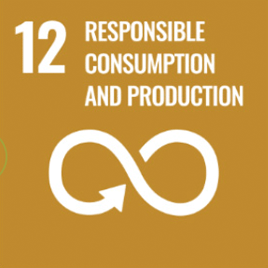Responsible content creation, consumption, and equity in the online world.
In the field of digital technologies, we are on the threshold of a new era where the potential for innovation is met with an urgent need for environmental and social responsibility.
The rapid expansion of digital infrastructure and the widespread use of digital devices has brought about unprecedented ease, access and connectedness. This progress comes at a huge environmental cost however, hidden by the intangible nature of digital consumption.
The environmental footprint of digital technologies covers not only the energy consumed by devices and data centres; but also the life cycle impacts of manufacturing, using, and disposing of billions of electronic devices worldwide. The digital divide continues to exacerbate inequalities, with access to technology remaining a luxury for many. This further entrenches inequity in society, creating barriers to education, employment, and participation in the digital economy for marginalised peoples.
The European Union and Irish legislation are beginning to address these challenges, with policies aimed at mitigating the environmental impact of digital technologies and bridging the digital divide. The EU’s Digital Services Act and Digital Markets Act, for example, are set to introduce new rules for digital platforms that will include considerations for user safety and the promotion of a fair digital market.
In Ireland, the National Digital Strategy aims to enhance digital skills, infrastructure, and governance, with sustainability and inclusivity at its core. These legislative efforts are examples of a growing recognition of the need to integrate digital technology development with humane environmental and social goals.
For the Cultural and Creative Industries, the digital sphere offers new ways to create, distribute, and engage with content. Thereby, opening avenues for innovation in storytelling and audience interaction. However, it also requires a thoughtful approach to the environmental and social impacts of digital activities. As a sector known for its ability to inspire and influence, the Cultural and Creative Industries are ideally positioned to lead by example, leveraging digital platforms to promote sustainability, inclusivity, and social justice.
By integrating sustainable practices into digital content creation, distribution, and consumption, we can help mitigate the environmental impact of digital technologies. This could involve strategies such as optimising digital infrastructure for energy efficiency, supporting the development and use of sustainable digital tools, and advocating for digital literacy and access.
Moreover, through their content and platforms, the Cultural and Creative Industries can raise awareness of digital sustainability issues, inspire positive social change, and foster a culture of digital responsibility.
Below is an infographic detailing Ireland’s energy consumption in 2022, as reported by the Central Statistics Office. It highlights that a significant share of our energy consumption is attributed to data centres. Notably the only energy consumption trend below that is increasing. As of 2023, 21% of electricity consumption is attributed to data centres.
This underscores the necessity for the formulation of digital sustainability policies. Eirgrid estimates that by 2028, data centres could account for 29% of Ireland’s electricity consumption in a median demand scenario (McGrath & Alamamos, 2024). There is also valid concern for the impact of data centres on water supply and infrastructure, which you can explore in the Water Impact Area.







